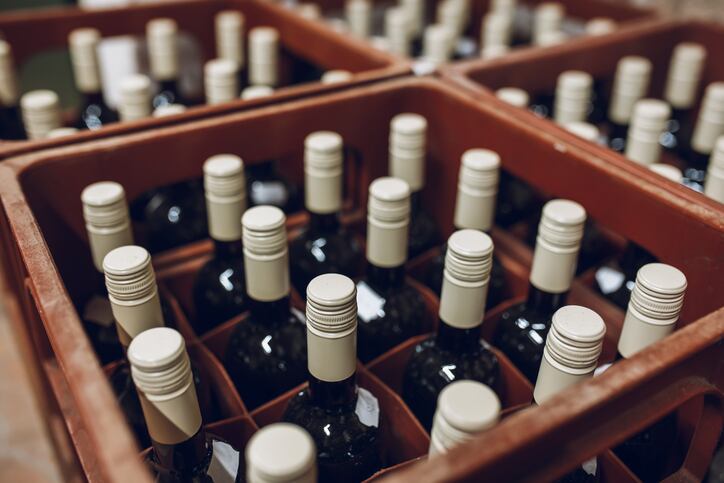Up to 2020, China had been the top market for Australian wine exports: but the imposition of tariffs of more than 200% on Australian wine products effectively scuppered a market that had been worth $1.3bn AUD a year ($850m USD) to Australian wineries.
Since the introduction of duties on Australian wine, exports to the market have fallen to $10m.
The number of exporters to the market have similarly decreased: from 2,198 to 117. Volumes declined from 688 million liters in 2018 to 248 million liters in 2023.
The removal of tariffs had been anticipated earlier this year but only confirmed today.
From zero to hero - and back again
Wine exports to China had been a real success story for Australia: rising from just $14m AUD in 2000 to $1.3bn in 2019. Growth was also driven by the introduction of a Free Trade Agreement in 2015.
In fact, China had become a 'standout' performer for Australian wine exports, and was the top export market by value.
Australian wines had also been building up recognition with Chinese consumers (Wine Intelligence data tracked that increasing significantly during the last decade: by 2022, almost 90% of imported wine drinkers in mainland China said they would be happy to recommend wines from Australia or proud to serve them).
For Wine Australia, the removal of tariffs represents an opportunity to reinstate a key market – all the more important as the wine industry globally faces challenges of declining consumption, economic pressures and supply chain issues.
“Mainland China remains an important market for the Australian wine sector,” said Dr Martin Cole, Wine Australia CEO.
“Over many years, Australian wine companies have developed close relationships with importers, buyers and consumers of Australian wine in China and these relationships remain important to our wine community. Pleasingly, we know that trade and consumer sentiment for Australian wine in China remains positive.”
“However, the wine market in mainland China is different now to what it was at the end of 2020. Wineries seeking information to re-enter the market are encouraged to review the Export Market Guide, market insights and sign up for information about upcoming activities at wineaustralia.com.
“We will support the Australian wine sector to re-enter the market through a coordinated set of activities and advice on market requirements, while continuing our market diversification efforts in other markets.”
Australia's top wine export markets (2023)
In 2023, the value of Australian wine exports declined 2% to $1.9bn AUD while volumes declined 3% to 607 million liters.
The top five markets by value (AUD) were:
• US (down 7% to $364m)
• UK (down 3% to $361m)
• Hong Kong (up 74% to $290m)
• Canada (down 24% to $143m)
• Singapore (up 1% to $133m)
The top five markets by volume were:
• UK (up 2% to 220 million liters)
• US (down 5% to 134 million liters)
• Canada (up 7% to 73 million liters)
• New Zealand (down 2% to 29 million liters)
• Germany (down 7% to 27 million liters)
Wine was just one product targeted by Chinese tariffs in 2020. Australia filed a complaint with the World Trade Organization about the tariffs, although the case was withdrawn last year as relations between the two countries improved.
China is Australia’s top trade partner for a number of commodities: led by raw materials such as iron ore.
In August last year, tariffs imposed on Australian barley were removed. However, tariffs on other products such as beef and lobster still remain in place.
A statement from Australian Prime Minister Anthony Albanese and heads of departments for trade, foreign affairs and agriculture says the re-entry of Australian bottled wine into the market will benefit both Australian producers and Chinese consumers.
“We acknowledge and thank Australian grape growers and wine producers for their fortitude and support during a challenging period,” reads the statement, published this morning.
“This outcome affirms the calm and consistent approach taken by the Albanese Labor Government and follows the success of the similar approach taken to remove duties on Australian barley.”

